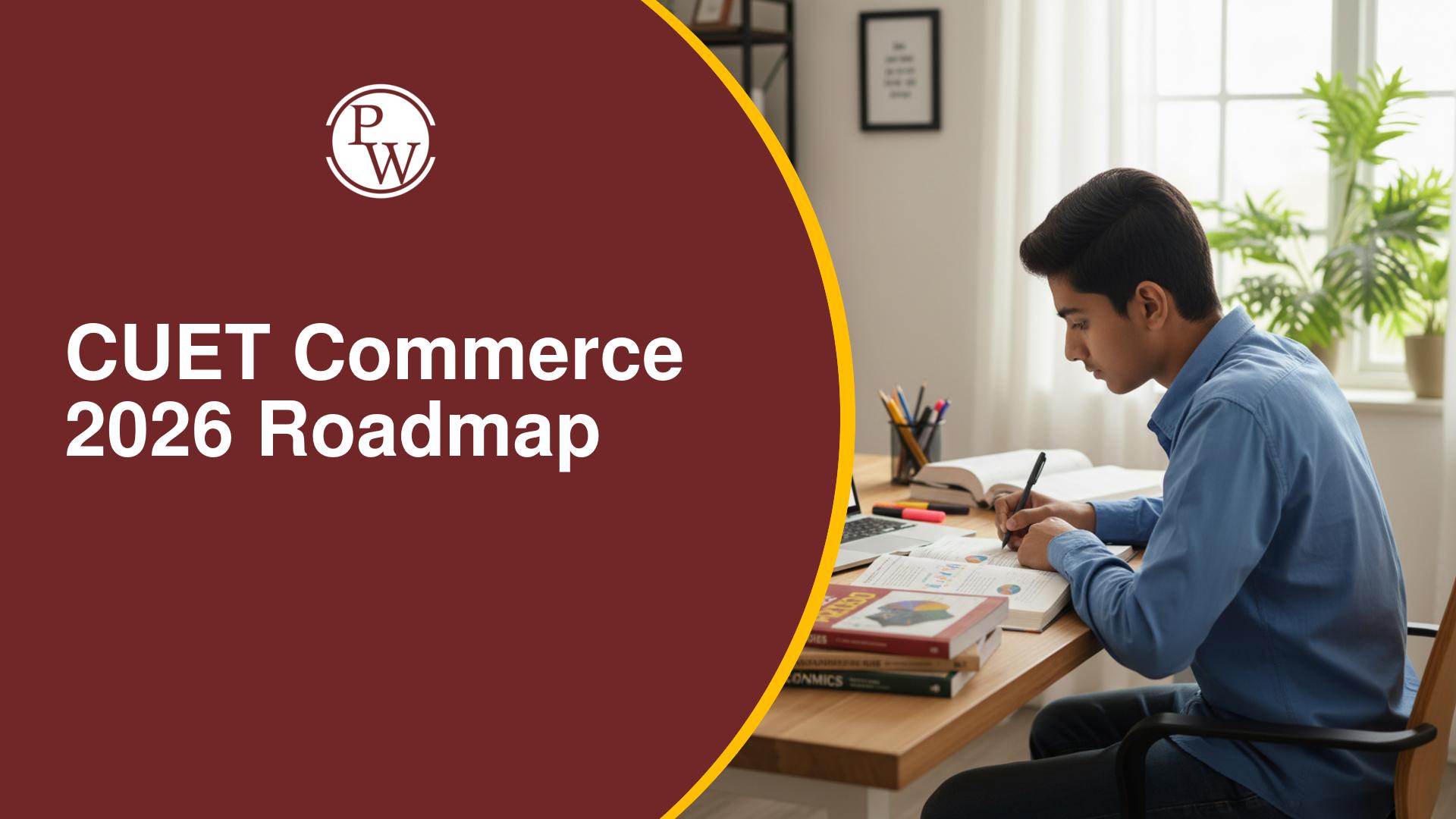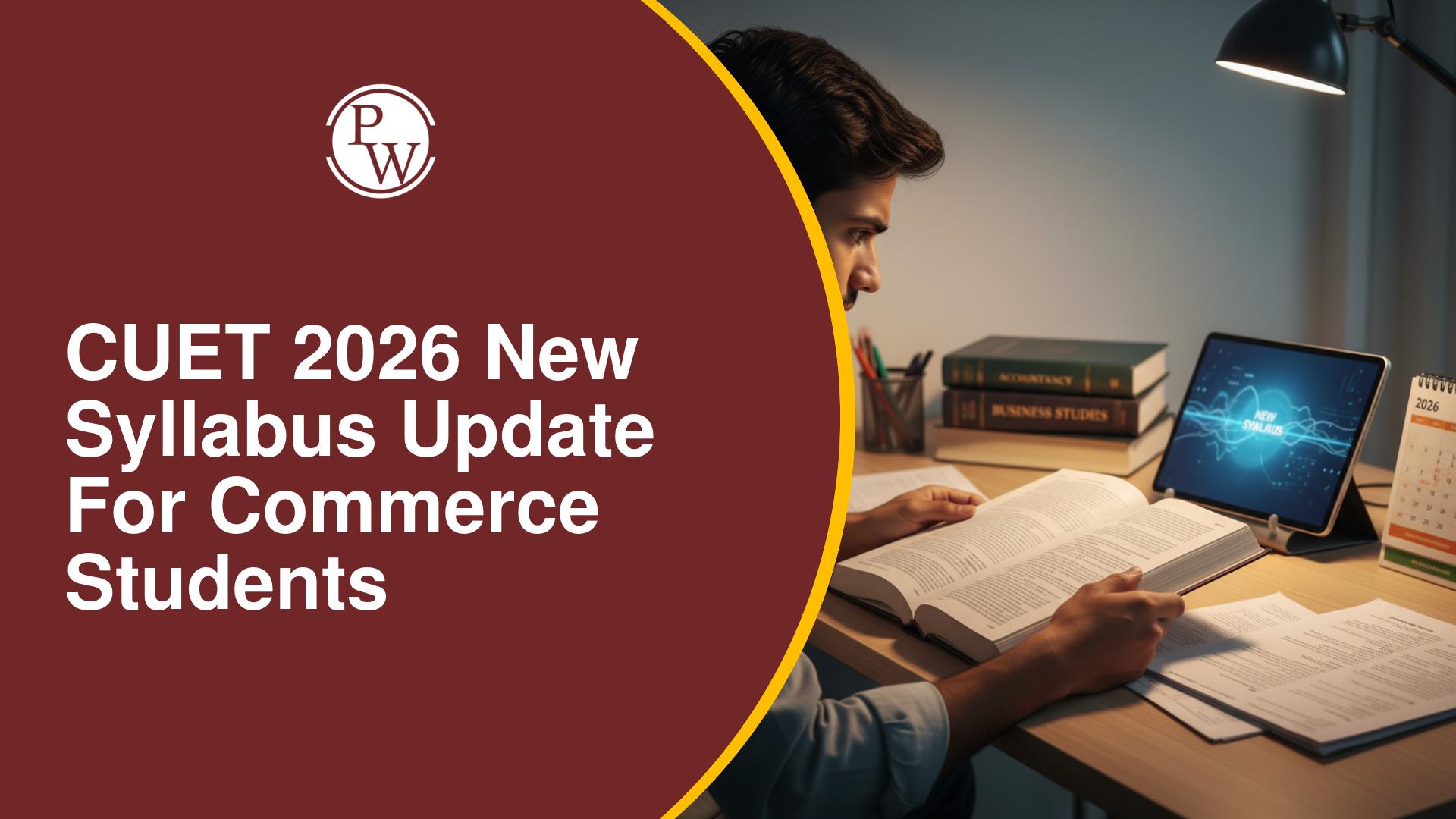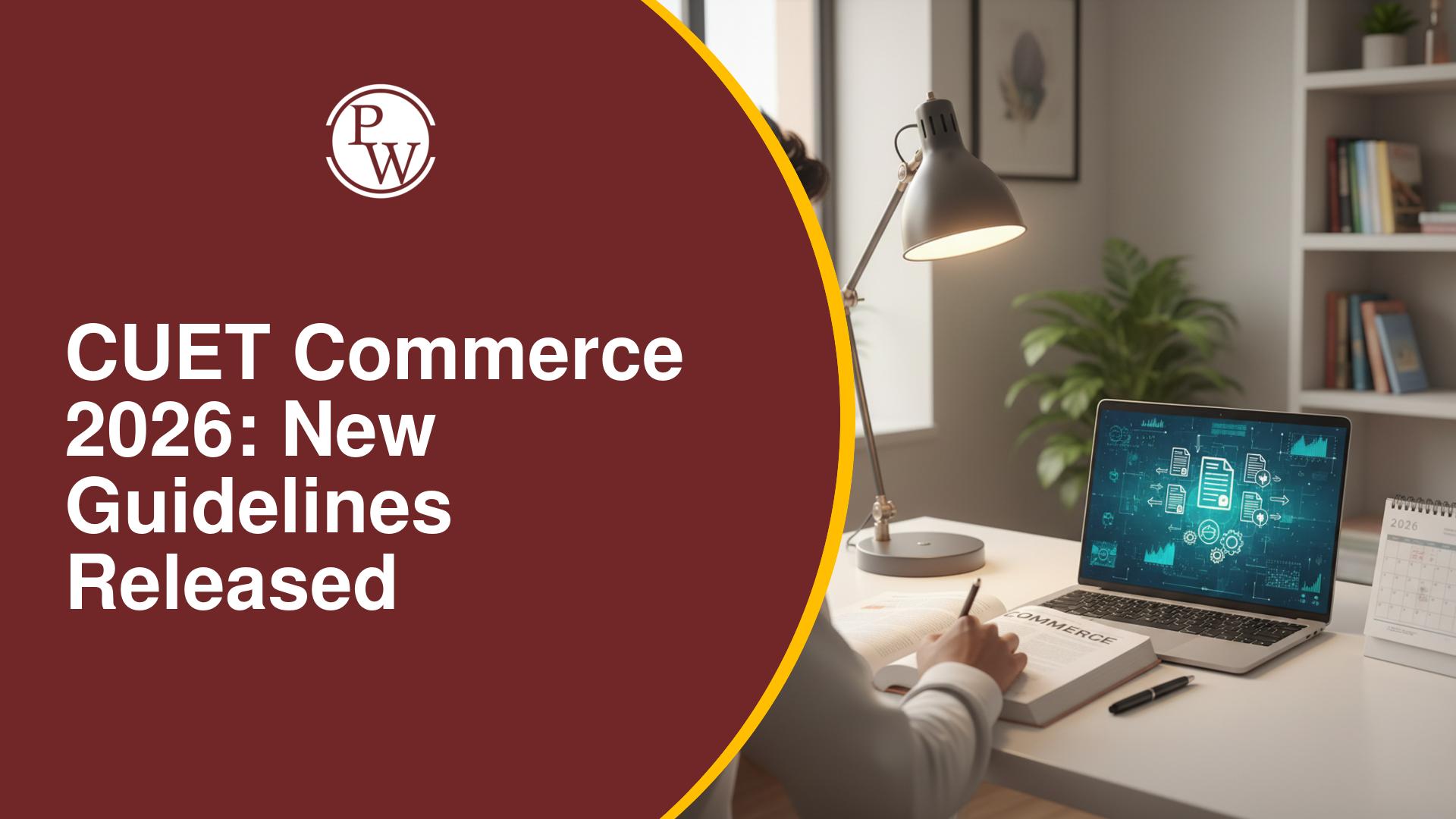
The CBSE Class 11 Applied Maths syllabus is made to help students learn important math skills that they can use in many areas, not just in physical sciences. This optional course wants to improve students' ability to talk about math, think logically, and solve problems.
It covers different topics like Numbers, Quantification, Algebra, Mathematical Reasoning, Calculus, Probability, Descriptive Statistics, Basics of Financial Mathematics, and Coordinate Geometry. The Class 11 Applied Maths Syllabus focuses on real-world applications, practical projects, and the use of tools like spreadsheets for graphing functions, financial calculations, data analysis, and more.CBSE Class 11 Applied Maths Syllabus 2025-26
The CBSE Class 11 Applied Maths Syllabus for 2025-26 is all about math that's useful in areas like statistics, probability, and financial math. It covers different parts like Numbers, Quantification, Algebra, Mathematical Reasoning, Calculus, Probability, Descriptive Statistics, Basics of Financial Mathematics, and Coordinate Geometry.
CBSE Class 11th Applied Maths Syllabus
2025-26
Note: This subject is made to connect the math you learn in class with real-life situations, helping you solve problems and use math in the real world. It gives you a unique way of looking at math.
| CBSE Class 11 Applied Maths Syllabus 2025-26 | |||
| Unit No. | Unit Name | Topics Covered | Key Concepts |
| 1 | Number, Quantification, and Numerical Applications | Numbers and Quantification, Simple applications of logarithm and antilogarithm, Laws and properties of logarithms, Indices, logarithms, and antilogarithms, Binary numbers, Numerical Applications (Seating arrangement, Mensuration, Time, work, and distance, Calendar, Clock, Averages) | Logarithmic functions, Binary number system, Practical applications of numerical concepts |
| 2 | Algebra | Sets, Operations on sets, Venn’s diagrams, Intervals, Subsets, Types of sets and their notations, Representation of sets, Introduction to sets – definition, Relations (Cartesian product of two sets, Ordered pairs, Sequence and series, Applications of AP and GP, Geometric progression, Arithmetic progression, Sequence and series, Permutations and combinations, Combinations, Permutations, Fundamental principle of counting, Factorial) | Fundamental set operations, Relations and functions, Sequences and series, Permutations and combinations |
| 3 | Mathematical Reasoning | Logical Reasoning | Logical reasoning principles and problem-solving |
| 4 | Calculus | Derivatives of algebraic functions using the chain rule, Differentiation as a process of finding derivative, Instantaneous rate of change, Concepts of limits and continuity of a function, Graphical representation of functions, Types of functions, Domains and range of functions, Functions | Fundamental concepts of calculus, Limits and continuity, Derivative applications |
| 5 | Probability | Bayes theorem, Total probability, Conditional probability, Event, Random experiment, and sample space, Introduction | Probability basics, Conditional probability, Bayes theorem |
| 6 | Descriptive Statistics | Correlation, Percentile rank and quartile rank, Data interpretation, Skewness and kurtosis, Measure of dispersion | Statistical measures, Data interpretation techniques |
| 7 | Financial Mathematics | Calculation and interpretation of electricity bill, water supply bills, and other bills, Bills, tariff rates, fixed charges, surcharge, service charge, Tax, calculation of tax, simple applications of tax calculations in Goods and Services tax, income tax, Simple applications of regular annuities [up to 3 periods], Annuities, calculating regular annuities, Present value, net present value, and future value, Effective rate of interest, Simple and compound interest rates with equivalency, Accumulation with simple and compound interest, Interest and interest rates | Financial calculations, Annuities, Net present value, Compound interest |
| 8 | Coordinate Geometry | Parabola, Circle, Straight line | Equations and properties of geometric figures |
What are the Practical Applications of CBSE Class 11 Applied Mathematics?
CBSE Class 11 Applied Maths syllabus 2025-26 is a course that focuses on using math in real-life situations. The goal is to help you learn practical math skills for other subjects. Here are some topics you'll study:
Number Theory: You'll learn about prime numbers, encryption, and how they're used in coding and decoding messages.
Interpretation of Data: This means looking at information shown in charts, graphs, histograms, and pie charts to understand and explain it.
Analysis of Data: You'll figure out things like the average (mean), middle (median), most common (mode), and how much the data varies (standard deviation and variance).
Commercial Mathematics: You'll use math to deal with real-life money situations, like calculating profit and loss, simple interest, compound interest, depreciation, and annuities.
Set Theory: This involves studying sets, subsets, Venn diagrams, unions, intersections, and how they're useful in practical situations.
Marking Scheme of CBSE Class 11 Applied Maths Syllabus
The marking scheme for CBSE Class 11 Applied Maths syllabus for the session 2025-26 is as follows:
| Marking Scheme of CBSE Class 11 Applied Maths Syllabus 2025-26 | |||
| S. No. | Units | No. of Periods | Marks |
| I. | Numbers, Quantification, and Numerical Applications | 25 | 09 |
| II. | Algebra | 45 | 15 |
| III. | Mathematical Reasoning | 15 | 06 |
| IV. | Calculus | 35 | 10 |
| V. | Probability | 25 | 08 |
| VI. | Descriptive Statistics | 35 | 12 |
| VII | Basics of Financial Mathematics | 45 | 18 |
| VIII | Coordinate Geometry | 15 | 05 |
| - | Total | 240 | 80 |
| - | Internal Assessment | - | 20 |
Preparation Tips for CBSE Class 11 Applied Maths 2025-26
Here are some important tips to prepare for CBSE Class 11 Applied Maths syllabus in 2025-26. By following these tips, you can enhance your preparation and excel in CBSE Class 11 Applied Maths in 2025-26:
Stay Organized: Clearly label variables and arrange them systematically when solving equations. This helps avoid confusion.
Double-Check Calculations: Take the time to revisit your calculations, especially in complex problems, to catch and correct small arithmetic mistakes.
Revisit Basics: Create flashcards for algebraic terms and concepts to reinforce your understanding of the fundamental principles.
Practice Factoring: Work on solving various problems to become comfortable with different factoring techniques.
Understand Formulas: Focus on understanding the logic behind formulas rather than memorizing them by rote. This will help you apply them more effectively.
Methodical Solving: When dealing with equations, ensure you consider all possibilities for solutions, particularly in quadratic equations.
Simplify Results: After solving a problem, always check if your answers can be further simplified. This helps ensure accuracy and clarity.
Graph Carefully: Double-check coordinates and ensure the smoothness of your graphs when plotting points or drawing graphs.
What are the most difficult topics in CBSE class 11 applied mathematics 2025-26?
In CBSE Class 11 Applied Maths syllabus 2025-26, some of the most difficult subjects are:
Calculus: This area covers functions, limits, continuity, differentiation, and instantaneous rates of change. These concepts might be challenging for students to understand because they can be quite intricate.
Probability: Understanding concepts such as random experiments, sample space, conditional probability, total probability, and Bayes' Theorem can be tough due to their abstract nature and how they are applied in real-world situations.
Basics of Financial Mathematics: Understanding topics like interest rates, annuities, tax calculations, bills, and financial applications requires a solid grasp of mathematical principles and their practical implications.
What are the Recommended Books for CBSE class 11 Applied Mathematics?
The books suggested by PW faculty and students for CBSE Class 11 Applied Maths Syllabus are:
Mathematics for Class 11 by R.S. Aggarwal:
- Written by R.S. Aggarwal , this book series has been a favorite among CBSE students for many years.
- It helps students understand mathematical concepts in a practical way.
Recommended Book: CBSE Class 11 Applied Mathematics Chapter-wise Textbook l 500+ MCQs and Practice Questions with Solutions & CBSE 2026 Sample Papers
A Textbook of Applied Mathematics for Class 11 (Vol. 1 and 2):
- This two-book set is designed to cover the entire syllabus thoroughly.
- It supports students in building a strong foundation in applied mathematics.
Join PW Commerce Online Course and unlock your potential with quality education and dedicated learning support.
| Related Links | |
| Commerce Class 11 | Class 11 Accountancy |
| Class 11 Commerce Syllabus | Class 11 English |
| Class 11 Business Studies | Class 11 Economics |
| Class 11 Maths | Class 11 Applied Maths Probability |
CBSE Class 11 Applied Maths Syllabus FAQs
What are we learning in CBSE Class 11 Applied Mathematics in 2025-26?
What topics are in the syllabus?
How can I do well in solving problems with equations?
How do I learn algebraic concepts better?
What's important when drawing graphs?










